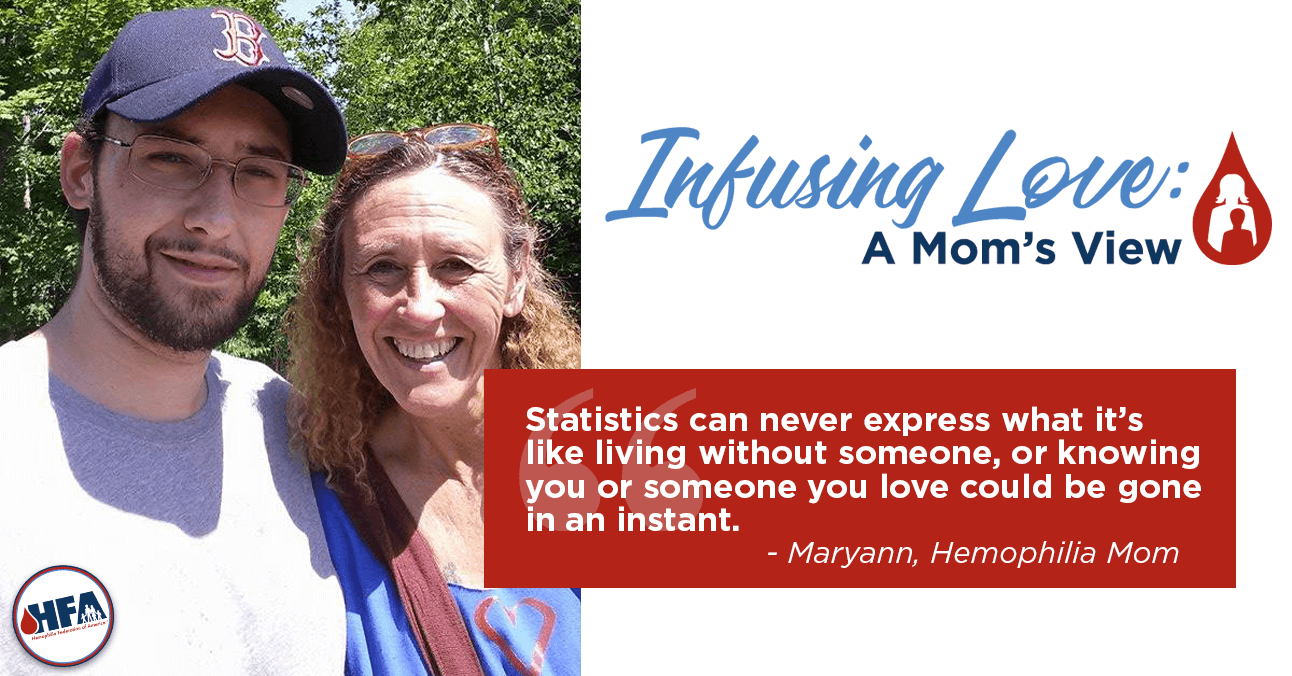
Do you remember the first time you heard about HIV or AIDS? Now it’s common to hear of it and you probably know people that have HIV.
It was the early ’80s when I first heard of HIV, there wasn’t even a name for it yet. I was sitting in my truck during a break at work with a friend when we heard on the news about this new disease that was killing people. One of the things they said was it could be a result of “bad behavior” and poor sexual practices. I was a teenager and young adult in the ’70s, and there was no such thing as “good” sexual behavior in those days. This friend and I had frequented bars and generally acted poorly together for much of the ’70s, so when we heard of this, we looked at each other, shrugged and said “nah,” not us.
Fast forward to the ’90s. I knew two people with hemophilia – both also had HIV. I didn’t know at that time that I was a carrier of hemophilia or that I would soon be involved with the bleeding disorder community. During those days, anyone who had hemophilia didn’t talk about it because people assumed, they also had HIV.
In 1992 my son was born. He was diagnosed with hemophilia at two days old. We were fortunate enough that the doctor on call was also a hemophilia specialist that worked at Yale New Haven Hospital one day a week. The first thing the doctor asked was if I had heard of hemophilia, so I told him about my two friends. Then he said, “don’t worry, it’s treatable” the next thing he said was “just because he has hemophilia doesn’t mean he has HIV.” He went on to explain the blood crisis to me. He did caution me that my son would have to be tested regularly for HIV since he was a severe and would need factor, but he also said the medicine “was probably safe.” These were the days before kids were put on prophy, they were treated on demand but being a severe, my son got treated often. There was no recombinant factor then and the first couple years of his life meant regular HIV testing for him.
In the following years I became friends with some of the founders of COTT, the Committee of Ten Thousand. I went to events and met others who had lost family to HIV/AIDs. I also started meeting people outside the hemophilia community who had contracted it and were willing to talk about it. Whether from behavior or mishap, one thing is still true – it’s devastating.
The reason I didn’t know about the hemophilia is because I’m adopted. It was when I met my birth mother that I discovered I had two brothers who had died from HIV because of the blood crisis. I had been a supporter of my friends from COTT and stressed the importance of Aids Awareness, but then it became personal. They say we are better advocates when something is personal. I feel like this happened to me, like I got gypped out of something because of it. So, I talked about it. I wrote about it. I told people I met in and out of the hemophilia community about it.
Not long ago I was able to go to the AIDS Memorial Grove (The Grove) in San Francisco. I was struck by the people who devoted their lives to spreading awareness and supporting others effected by HIV. I was a little sad knowing I could never afford to have my brother’s names placed in the hemophilia circle. Then I did what I do – I talked about it and wrote about it. Someone in this community heard my story and went to the director of The Grove with the story. The next thing I know I’m being contacted about having their names placed. I still get choked up when I write about this.
The disease of HIV killed or infected most of a generation of people with hemophilia. Family members became infected, people lost brothers, sisters, husbands, wives and children. The survivors are living in their own special hell, whether waiting for a family member to die or outliving their children.
We in the bleeding disorders community have the advantage of having lived with this threat for decades but what about the rest of the world? I could quote statistics, which I do on Aids Awareness day, instead I’ll caution you to be aware. Just because our medicine is “probably safe” it doesn’t mean there aren’t still ways to get HIV. Just because there are good treatments for HIV doesn’t mean it still doesn’t ruin lives and families.
If you haven’t talked to a mother, a family member, or someone living with HIV, take the time to do it. Statistics can never express what it’s like living without someone or knowing that you or someone you love could be gone in an instant.
Maryann and her adult son, Max, live in New Hampshire
*Note: “Infusing Love: A Mom’s View,” is a blog collection of personal opinions and a representation of individuals experiences. While extensive efforts are made to ensure accuracy of the content, the blog entries do not represent HFA or its Board of Directors. The blog is also not intended to be construed as medical advice or the official opinion/position of HFA, its staff, or its Board of Directors. Readers are strongly encouraged to discuss their own medical treatment with their healthcare provider.



